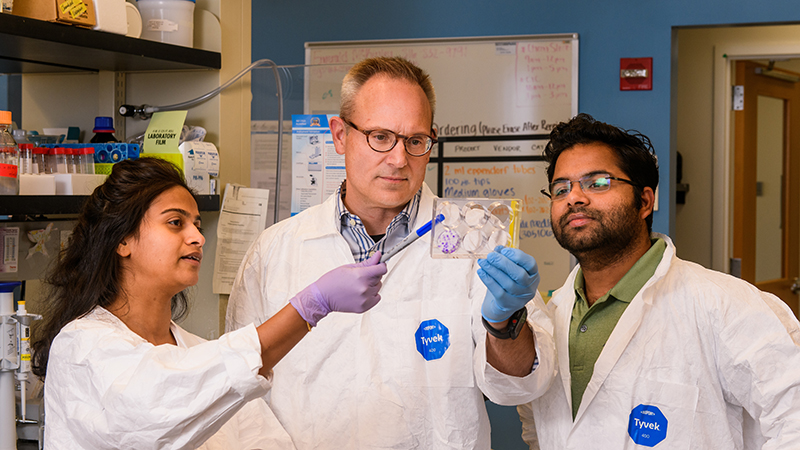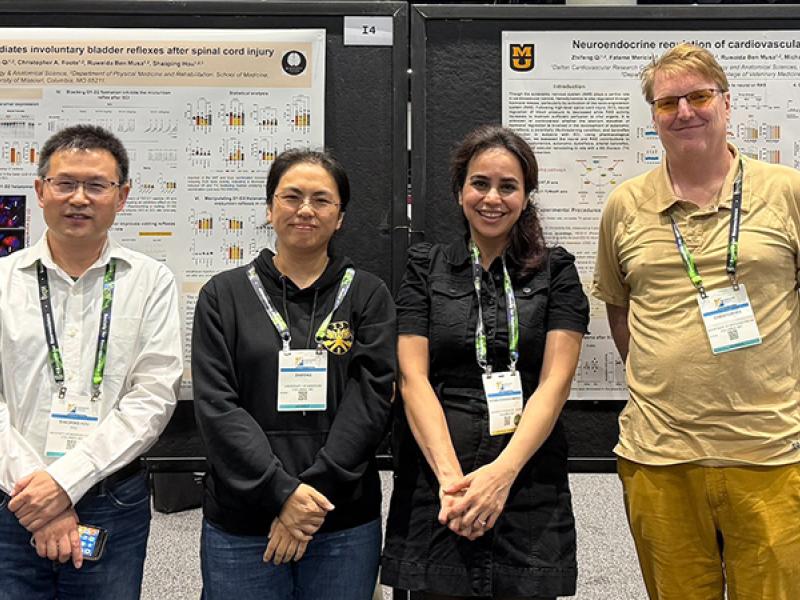
A University of Missouri researcher has received a pair of national grants for two purposes involving the same essential nutrient.

A $2.3 million grant from the National Cancer Institute (NCI) will allow professor Michael Petris, PhD, a researcher with appointments in MU School of Medicine departments of ophthalmology and biochemistry, to study therapies designed to slow the growth of cancers by altering copper in the body.
“Copper is an essential micronutrient required in higher amounts by cancer cells relative to normal tissues,” Petris said. “Limiting copper availability is a promising anti-cancer strategy, so we decided to specifically target a copper transporter in the intestine.”
Previous Petris lab studies have shown a copper pump called ATP7A carries copper across the intestine into the body. A researcher in the Petris lab, Vinit Shanbhag, PhD, had also shown that ATP7A helps cancer grow and spread around the body. Petris and Shanbhag collaborated with Kamal Singh, PhD, of MU’s College of Veterinary Medicine, to search for a compound that plugs the ATP7A protein. The team screened millions of compounds to find a novel molecule called MKV3 that binds to ATP7A and blocks its activity.
“Preliminary results indicate that MKV3 reduces the growth and spread of breast cancer in mice,” Petris said. “This grant will allow us to optimize MKV3 in the lab and ultimately move it toward clinical trials in cancer patients.”
In a separate grant, the National Institute of Diabetes and Digestive and Kidney Diseases (NIDDK) has awarded Petris more than $2 million to investigate a potential treatment for Wilson’s disease, a rare inherited condition that causes too much copper to accumulate in the liver, brain and other organs. Petris’ team will study how reduced oxygen levels — a condition called hypoxia — can alter the way copper is moved inside the body.
“Copper is essential for harnessing the oxygen to make energy and for making red blood cells, which carry oxygen around the body,” Petris said. “We will use a drug called Roxadustat, which mimics the impacts of hypoxia to test how the lack of oxygen changes copper levels in the body and whether it can be used to treat Wilson’s disease.”
This NIDDK grant runs through April 2026, while the NCI grant ends in July 2026.





